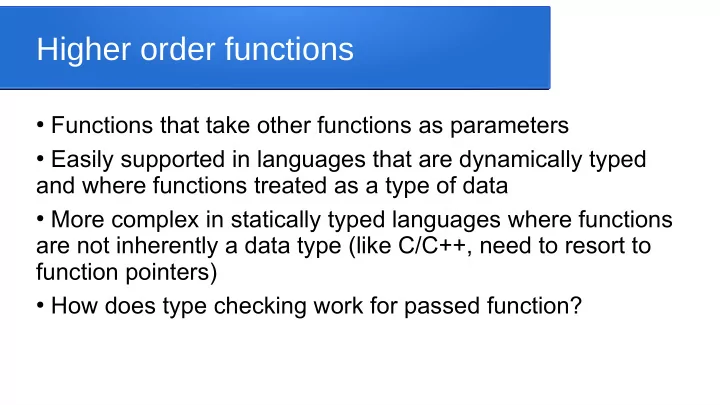

Higher order functions ● Functions that take other functions as parameters ● Easily supported in languages that are dynamically typed and where functions treated as a type of data ● More complex in statically typed languages where functions are not inherently a data type (like C/C++, need to resort to function pointers) ● How does type checking work for passed function?
Lisp ● we’ve looked at lisp, where we can easily pass functions and where callee can check passed item at run time to see if it really is a function ● Variety of built-in mechanisms to support calling the passed function on other data ● Type checking is done at run time, as with rest of lisp, so potential type issues deferred until point where relevant data is used on invoked function
C / C++ Function identifiers are actually pointers to the location in memory where the relevent executable ● instructions are stored Can pass name of one function to another, as long as the profile (number/type/order of parameters) ● of the actual parameter of the passed function matches the profile of the corresponding parameter sample syntax ● void higherOrder(char (*func)(int, double)) { Char c = (*func)(10, 3.14); } func is the function pointer, int, double are parameter types it is expecting, and char is the return type, sample call to higherOrder might be C = higherOrder(somefunction)
C++ and templates ● If using C++, we can make the profile for the formal parameter more flexible by giving some or all of its parameters/return type templated types ● Here we make one of the parameters a templated type, can pass any function that returns a char and takes two parameters, the second of which is a double template <class T> void higherOrder(char (*func)(T, double));
Recommend
More recommend